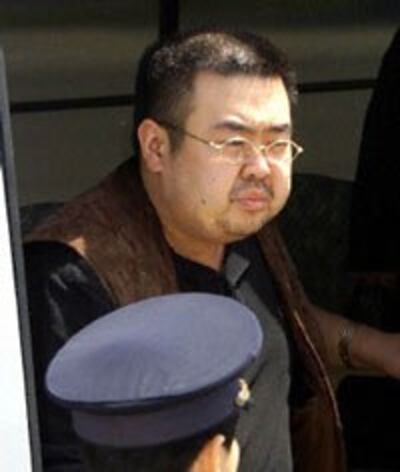SEOUL—North Korean government agencies are collecting staff signatures on petitions calling for the swift naming of the country’s next leader, a well-informed North Korean trade official has said.
“Currently, the [North Korean] People’s Army, the State Safety and Security Agency, the State Security Department, and the Workers’ Party are asking staff members to sign a petition requesting Great General Kim Jong Il to accelerate the process of appointing a successor,” the official, who spoke on condition of anonymity, said.
The official, speaking in an interview in China, said that in the near future, all members of the ruling Workers’ Party will likely be asked to sign the petition.
The move to collect signatures comes amid mounting speculation that either Kim Jong Un, the third and youngest son of North Korean leader Kim Jong Il, or Kim Jong Chul, his second son, is being groomed as a successor.
Both Kim sons are in their 20s, but the official said North Koreans generally believe they are in their 30s.
Experts say authorities are likely spreading this idea because Kim Jong Il was designated his father’s successor in 1974 at age 32.
That same year, Kim was elected to the Political Committee of the Korean Workers’ Party Central Committee, and North Koreans began referring to him as “Dear Leader” and “Brilliant Leader.”
Experts who lived in North Korea at the time say signatures were also used then to show unanimous support for Kim Jong Il's rise.
‘Long-cherished dream’
Kim Heung Kwang, a North Korean defector at the Seoul-based NGO North Korea Intellectuals Solidarity, said the succession is portrayed as the “ardent desire and long-cherished dream” of the North Korean people—who are “eager” to see a swift transfer of power.
“This way, the authorities create the impression that the call for designating a successor becomes an overwhelming updraft, [a] popular tide, begun at the bottom and roaring upward to reach the ear of Dear Leader Kim Jong Il,” Kim said.
By designating a successor through a popular plea, authorities aim to lend legitimacy to a young and inexperienced heir apparent, analysts say.
Kim Kwang In, president of the Center for North Korea Strategy, said keeping up an appearance through appropriate form and ceremony is essential to the succession process.
“The most appealing way of promoting the power succession as ‘the will of the entire people’ is to have the staff members of various government agencies sign and send a petition asking for the early anointment of the Dear Leader’s successor,” Kim said.
The North Korean official said the rush to name Kim Jong Il’s successor stems from the leader’s declining health.
He said that while recently visiting a military unit, Kim Jong Il was unable to climb a flight of 10 stairs and had to be supported by one of his bodyguards.
Soldiers who witnessed the incident told their families about Kim’s condition. They in turn told others, and now Kim's poor health is well known, the official said.
The ‘luckless prince’

The eldest of Kim’s three sons, Kim Jong Nam, appears to have been passed over as a potential successor.
Kim Jong Nam is little known, even within North Korea.
Asked about Kim, who lives in Macau, the trade official seemed surprised by the existence of a first son.
Reports by both Japanese and South Korean media speculate that Kim Jong Nam, whom some have dubbed “the luckless prince,” may be seeking asylum in a foreign country to escape reprisals from his overpowering siblings.
Kim Jong Nam was born in 1971 to Kim Jong Il and actress Song Hye Rim, whom Kim had met while overseeing the activities of the Propaganda and Agitation Department during his early years in the Workers’ Party Central Committee.
Kim and Song were never officially married.
According to the memoirs of Lee Han Young, Song Hye Rim’s nephew who defected to South Korea in 1982 and was assassinated in 1997, Kim Jong Nam was treated like a “prince.”
But Kim was kept secret from the public because his father’s authority as future leader of North Korea would have been undermined if his illicit relationship with Song was discovered.
Experts believe Kim Jong Nam may initially have been considered to succeed his father, but was eventually passed over for his legitimate siblings.
Similarly, when Kim Jong Il was confirmed as successor to Kim Il Sung in the early 1970s, his half-brother Kim Pyong Il was sent overseas and Pyong Il’s supporters and sympathizers were purged.
Original reporting by RFA’s Korean service. Translated by Greg Scarlatoiu. Written in English by Joshua Lipes. Edited by Sarah Jackson-Han.
